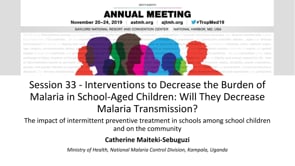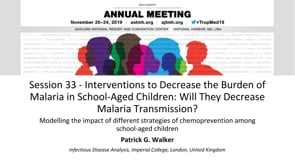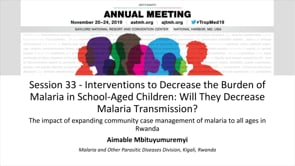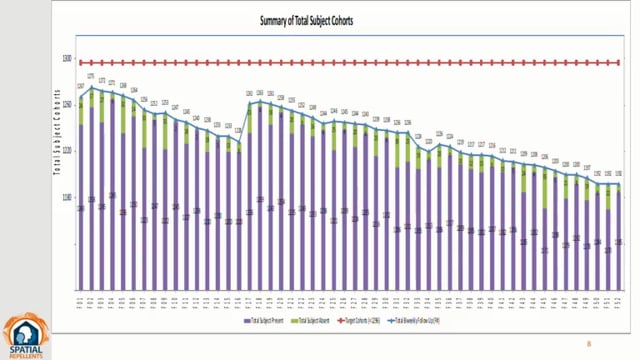ASTMH 2019, Catherine Maiteki-Sebuguzi: “The impact of intermittent preventive treatment in schools among school children and on the community”
Collaborator(s): Ministry of Health (MOH) Uganda, Uganda
Published: 21/11/2019
In collaboration with ASTMH, Image Audiovisuals, and session presenters, MESA brings you this webcast from the 68th ASTMH annual meeting in Maryland, November 2019
Title: “The impact of intermittent preventive treatment in schools among school children and on the community”
Speaker: Catherine Maiteki-Sebuguzi, Ministry of Health Uganda
Session information:
November 21, 2019, 1:45 PM – 3:30 PM, Maryland
Abstract:
School-aged children (SAC; 5-15 years old) have the highest burden of malaria infection in many malaria-endemic regions, however, they are not specifically targeted by current malaria control interventions. This has important implications for the health of these children and may also be a key barrier to malaria elimination efforts. Schoolchildren are major contributors to the infectious reservoir, and account for a substantial portion of transmission. Targeting chemoprevention to school-aged children stands to provide substantial health benefits to individual children and may prove an effective means of reducing transmission, while at the same time, mitigating concerns about drug pressure and resistance as compared to a standard mass drug administration approach. This symposium will explore various drug-based strategies to treat or prevent malaria in school-aged children and evaluate their potential impact on malaria transmission. A wide range of strategies exist. Efforts may focus on preventing infection or identifying and treating sick children. In addition, current pilot studies include interventions based in schools and other based in the community. Each of these approaches have different benefits and challenges and may have differential impact on transmission. This symposium will present case studies examining the impact and implementation challenges from three different strategies, expansion of seasonal malaria chemoprevention (SMC) to SAC, expansion of community case management (CCM) to include SAC, and finally intermittent preventive treatment in school children (IPTsc). The session will then use modelling to better understand the potential impact of these strategies more generally. At the close of the symposium, the chairs will lead a discussion of how to further evaluate and potentially implement these interventions, including how to achieve high coverage and ways to integrate chemoprevention with other school-based programs. The symposium will also discuss the remaining knowledge gaps to be addressed with further research, including the potential impact on naturally acquired immunity and risk of rebound and the risk of accelerating antimalarial drug resistance.



